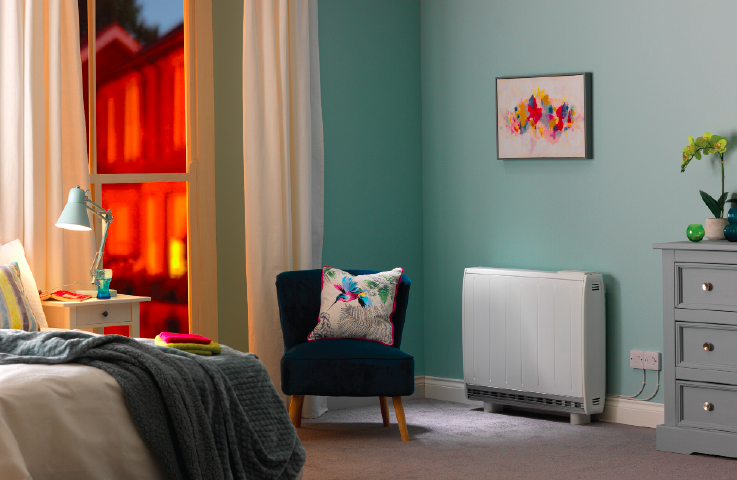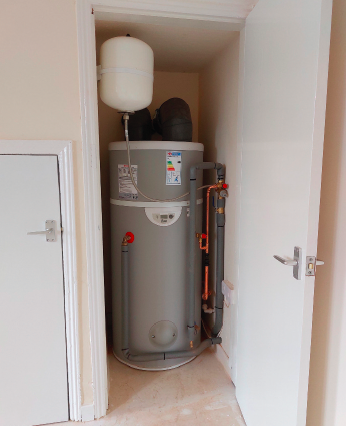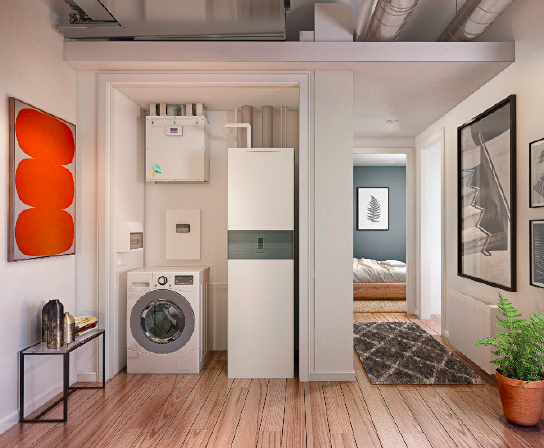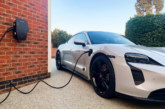
David Patrick, Head of Specification marketing from Dimplex, looks at the vital role heating technology plays in creating sustainable, energy-efficient homes and how the industry can navigate the challenges of decarbonisation.
The housing sector stands at a crossroads, with sustainability and energy efficiency driving transformative change. For housebuilders, the challenge lies not only in meeting regulatory requirements but also in future-proofing homes for evolving demands and environmental priorities.
Heating technology has the potential to bridge this gap, contributing to lower carbon footprints and improved energy performance while ensuring affordability and comfort for occupants.
The UK government’s commitment to net-zero carbon emissions by 2050 has sharpened the focus on energy use in buildings. Here, the role of advanced heating technology is crucial. Systems designed with energy optimisation in mind, such as heat pumps and efficient electric heating solutions, are key enablers of sustainability. These systems not only minimise energy use but also support integration with renewable energy sources like solar and wind.
Heat pumps: a catalyst for change
Heat pump technology exemplifies the shift towards low-carbon heating. Their ability to deliver heat using a fraction of the energy consumed by traditional systems makes them an attractive solution for both new-build projects and retrofits.
For example, Dimplex’s Edel Hot Water Heat Pump, designed to provide energy-efficient domestic hot water, demonstrates how small-scale heat pumps can play a big role in reducing household emissions. Compact and versatile, it suits a variety of residential settings, ensuring that sustainability doesn’t come at the cost of convenience or performance.
Innovation in electric heating
Electric heating solutions have advanced significantly, transforming previous views about their efficiency and performance. Advances in smart technology and thermal storage are reshaping perceptions. Systems like the Quantum High Heat Retention Storage Heater allow homeowners to store low-cost, off-peak energy and use it throughout the day, cutting energy costs while reducing strain on the grid. For developers, the appeal lies in simplicity and adaptability. Electric heating eliminates the need for gas connections. Combined with renewable energy sources, it becomes part of an integrated approach to energy efficiency.
Creating the sustainable homes of tomorrow
For multi-residential developments, innovative communal systems are emerging as game-changers. The Zeroth Energy System, for example, uses an ambient loop system with in-apartment heat pumps, reducing energy consumption and carbon emissions while giving residents control over their heating and cooling needs. This approach aligns with the broader push for decentralised, efficient energy systems in modern housing and enables connection to district heating networks.
A practical roadmap
The journey towards sustainable homes requires a collaborative effort. For housebuilders and architects, the focus should be on integrating heating solutions that not only meet today’s standards but are flexible enough to adapt to future needs. This means:
- Advance Planning:
Consider energy efficiency and heating technology at the design stage. Early adoption ensures systems are seamlessly integrated and optimised for the building’s requirements. - Holistic Thinking:
Adopt a wholehouse approach, combining heating systems with insulation, ventilation and renewable energy sources to maximise energy efficiency. - Partnering for Success:
Work with manufacturers and suppliers who offer end-to-end support, from design advice to after-sales service, ensuring systems are installed and maintained correctly. - Educating Homeowners:
Empower homeowners with knowledge about their heating systems, helping them make the most of energy-efficient technologies and understand their role in reducing carbon emissions.
With the Future Homes Standard on the horizon, we stand on the brink of a sustainable housing revolution. Heating technology is transforming the way we design and build homes and, by embracing innovation, housing professionals have the power to create homes that go beyond compliance, setting new benchmarks in energy efficiency and sustainability.





